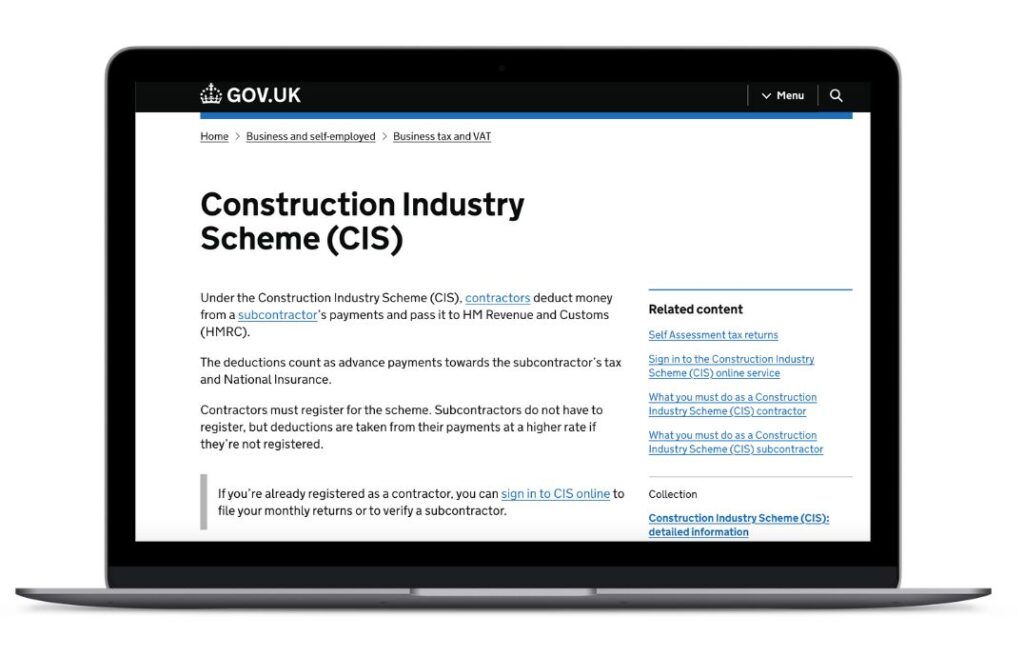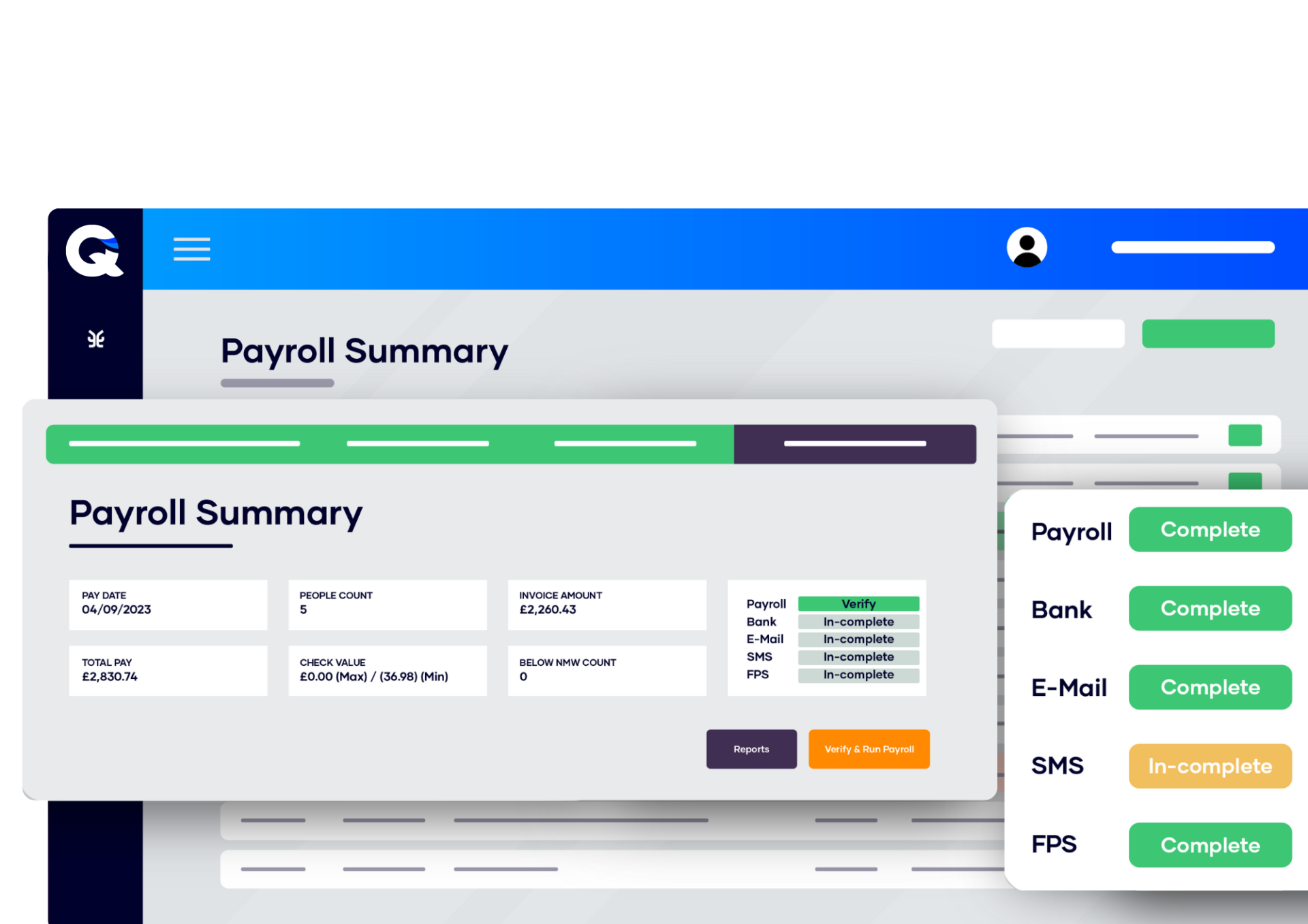The Construction Industry Scheme (CIS) is a tax system introduced by HM Revenue and Customs (HMRC) in the UK to regulate how payments are made to subcontractors in the construction sector.
Designed to tackle tax evasion and ensure compliance, CIS requires contractors to deduct money from subcontractor payments and forward it directly to HMRC. These deductions act as advance payments towards the subcontractor’s tax and National Insurance obligations.
If you operate in the construction sector, whether as a contractor or subcontractor, understanding CIS is crucial to ensuring compliance and avoiding penalties.
How does CIS work?
Under CIS, contractors are required to register with HMRC and verify their subcontractors. Once verified, contractors must deduct 20% for registered subcontractors or 30% for unregistered subcontractors from their payments and send this to HMRC.
Subcontractors, in turn, receive a deduction statement detailing the amount withheld, which is then offset against their end-of-year tax liability. This ensures that taxes are paid accurately throughout the year, reducing the risk of large payments or refunds during tax season.
Who does CIS apply to?
CIS primarily applies to:
- Contractors: Businesses or individuals paying others for construction work.
- Subcontractors: Businesses or individuals performing construction work and receiving payments from contractors.
CIS covers most construction activities, including site preparation, building work, repairs, and demolition. However, certain jobs, like architecture or surveying, are excluded unless performed as part of broader construction work.
Responsibilities under CIS
For contractors, compliance involves:
- Registration: Register as a contractor with HMRC before hiring subcontractors.
- Verification: Verify each subcontractor with HMRC to determine their deduction rate.
- Deductions: Deduct the correct percentage (20% or 30%) from payments and forward it to HMRC.
- Record-keeping: Maintain accurate records of all payments and deductions made.
For subcontractors, compliance involves:
- Registration: Register with HMRC to benefit from the standard 20% deduction instead of 30%.
- Records: Keep track of deduction statements provided by contractors to ensure proper tax accounting.

Benefits of CIS
- Streamlined tax compliance: Regular deductions mean subcontractors are less likely to face large tax payments at year-end.
- Reduced risk of tax evasion: Deductions ensure tax obligations are met before payment is received.
- Improved cash flow management: Contractors manage their tax obligations incrementally, avoiding sudden financial burdens.
Potential challenges with CIS
While CIS simplifies tax compliance, it does come with challenges:
- Administrative burden: Contractors must manage verification, deductions, and reporting, which can be time-consuming.
- Cash flow for subcontractors: Deductions reduce immediate income, which could strain finances if not managed carefully.
- Penalties for non-compliance: Failure to comply with CIS regulations can lead to fines and audits.
Key takeaways
For subcontractors, compliance involves:
- CIS is a mandatory tax scheme for the construction industry that governs contractor payments to subcontractors.
- Compliance involves registration, accurate deductions, and regular reporting.
- While beneficial for tax compliance, CIS can pose administrative challenges.
Whether you’re a contractor or subcontractor, staying compliant with CIS is essential for avoiding penalties and maintaining smooth operations.
How QPS can help
Managing CIS compliance can be complex, especially for growing businesses. QPS offers expert payroll and compliance solutions tailored to construction companies. From verifying subcontractors to managing deductions and submitting reports to HMRC, we streamline the process, allowing you to focus on your core operations.
We are FCSA accredited for our CIS payroll services. If you would like to register with us as a CIS contractor, simply fill out our online registration form here.







